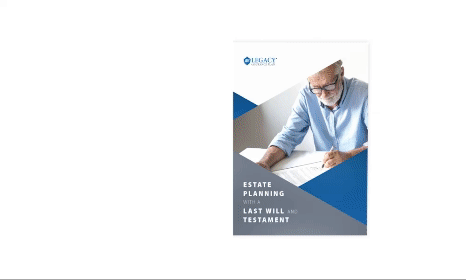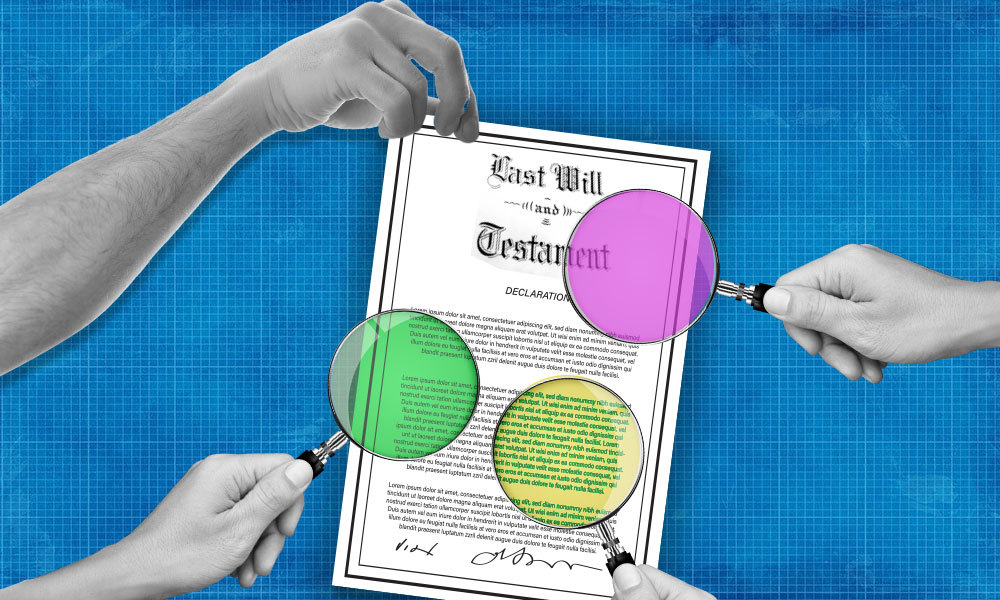Discussing and sharing your last will and testament with family members isn't always a comfortable topic, but it's a crucial one. This simple yet profound act can significantly reduce the chances of disputes and confusion when you're no longer around to explain your decisions.
Deciding whether to share a copy of your will with your family while you are still alive is a deeply personal and complex choice. This decision can have significant emotional and practical impacts both for you and your family members. Understanding the pros and cons can help guide you toward a decision that aligns best with your individual circumstances and family dynamics.
Can sharing my will help avoid disputes and confusion?
One of the primary advantages of letting your family have a copy of your will is the reduction of potential disputes and confusion following your demise. Clarity about your final wishes can minimize misunderstandings and conflicts among family members, ensuring a smoother transition during a challenging time.
Your will is more than an estate planning document; it's a clear statement of your final wishes regarding how your assets should be distributed after your passing. Sharing your will with your family helps ensure that everyone understands your intentions. This clarity is invaluable, as assumptions or misconceptions about inheritance can lead to bitter disputes.
Without knowledge of the actual contents of a will, family members might fill the gap with speculation and guesswork. This can breed conflict, especially if the reality differs significantly from what they expected. Openly discussing your will helps prevent such misunderstandings.
Sharing your will also offers a platform for family discussions. It allows family members to ask questions and understand the rationale behind your decisions. Such conversations can be instrumental in resolving any latent family tensions or misunderstandings about your intentions.
In addition, being upfront about your estate plan can help family members prepare emotionally and mentally for what's to come. It gives them time to process and accept your decisions, reducing the shock and potential for dispute when the will is eventually executed.
When family members are informed about their inheritance (or lack thereof), they can plan their finances and future accordingly. Knowing what to expect can deter any false hopes and mitigate feelings of resentment or surprise that might arise after your passing.
A well-explained will leaves little room for interpretation, thereby reducing the likelihood of legal challenges. When beneficiaries understand the "whys" behind your decisions, they're more likely to respect them.
If your will contains elements that could be perceived as unfair (for example, uneven distribution of assets among siblings), discussing your reasons can alleviate feelings of injustice or neglect. Explaining the context — perhaps the needs, circumstances or previous support given to each beneficiary — can foster a sense of understanding and fairness.
A family that discusses such sensitive topics is often a family that learns to navigate difficulties together. Sharing and understanding your will can be a unifying experience, fostering a collective respect for your legacy. Informed family members can work together more effectively when the time comes to execute your will. This unity is especially crucial if your estate is complex, involving businesses, properties or substantial investments.
Another benefit of sharing the details of your will with family members can be the peace of mind it provides both to you and your family members. Knowing that your loved ones are aware of and prepared for your wishes can bring comfort and reassurance. Discussing the contents of your will means facing the uncomfortable subject of death. However, completing this difficult task can relieve the burden of unspoken thoughts and uncertainties. Knowing that your wishes are understood and will be honored can bring a profound sense of relief.
If I share my will with my family, what could go wrong?

While sharing a last will and testament with family members can foster transparency and prepare them for the future, it's not without its drawbacks. The decision to disclose the contents of a will can lead to various complications and pressures, especially if family dynamics are complex or if you're in a vulnerable state. Understanding these potential pitfalls is crucial for making an informed decision about discussing your will with family members.
One major risk is pressure to alter the will and the influence of family dynamics. Sharing your will can open the door for family members to pressure you into changing it, particularly if they're unhappy with the provisions. This pressure can be more intense if you're facing health issues or are in a vulnerable state, where your ability to withstand such pressure might be compromised.
Can I balance emotional ties and fair decisions?
When crafting a last will and testament, one often envisions a document that reflects personal wishes and fair distribution of assets. However, the emotional bond with family members can turn this straightforward process into a complex emotional and ethical dilemma. Especially in families where emotions run high, the challenge to maintain objectivity while crafting a will can lead to a tug-of-war between personal convictions and familial expectations.
Strong emotional bonds with certain family members can create a sense of obligation that might conflict with the desire to be equitable or to honor other commitments. For instance, a parent might feel compelled to leave a larger portion of their estate to a child who has been more attentive and caring, despite an initial intention to divide assets equally among all children.
Family members who feel they deserve more may not shy away from expressing their feelings or making emotional appeals. This can be particularly true in cases where one sibling has chosen a more financially rewarding career path, and others might feel their financial contributions to the family or their presence during hard times should earn them a larger share.
Consider the example of the caring child and the emotional dilemma that can take place. John, a widower, initially planned to divide his estate equally among his three children. However, his youngest daughter, Mary, has been his primary caregiver, sacrificing her time and career opportunities. Mary’s siblings live out of state and visit occasionally. As John’s health declines, Mary, feeling the strain and sacrifices she's made, subtly suggests that it would be fair if she received a larger portion of the estate. John, torn between his principle of equality and his gratitude and sympathy for Mary, faces a moral and emotional dilemma.
If John succumbs to Mary's request, the potential outcome may be resentment and legal disputes among the siblings after his passing, fracturing the family. Conversely, if he sticks to his original plan, Mary might feel undervalued and unappreciated, potentially impacting her relationship with her father and siblings.

In another example, Sarah's son, Michael, is a successful entrepreneur. Her other children followed more traditional, less lucrative career paths. Michael insists that he doesn’t need any inheritance and that his share should go to his siblings. Sarah values fairness and wants to treat all her children equally, but she also understands Michael's perspective and the financial challenges of her other children.
If Sarah reallocates Michael’s share to his siblings, the potential outcome might be to create an underlying sentiment of inequity. Michael may later feel regret or exclusion, particularly if his financial situation changes. If Sarah maintains equal distribution, her other children might face financial struggles, knowing a portion of their inheritance was “unnecessarily” allocated to their wealthy brother.
Facing such scenarios, the will-maker is often caught in an emotional tug-of-war. The desire to maintain fairness and stick to personal principles can clash with the guilt, affection and empathy felt toward specific family members.
This tug-of-war can lead to:
- Emotional stress. Constant wavering and second-guessing decisions due to emotional pressures can be mentally exhausting.
- Family discord. Altering the will to favor one party can sow seeds of discord and lead to disputes or even legal challenges after the will-maker's passing.
- Regret and resentment. Whether you succumb to pressure or stand your ground, the decision might lead to feelings of regret or resentment, either within yourself or among family members.
Indeed, the intersection of emotional bonds and the objective intentions of a will can create a complex web of moral and emotional challenges. Balancing personal convictions with family dynamics requires careful thought and often, the guidance of an objective third party, like an estate attorney or a family counselor. It's crucial to approach these situations with clear communication, legal advice and a deep understanding of both the emotional and practical implications of altering one's last will and testament.
Is there a risk of over-entitlement?
When family members are made aware of the details of your will, there's a risk that some may feel overly entitled to certain assets. This sense of entitlement can lead to strained relationships or unrealistic expectations, causing friction within the family unit.
Upon discovering the specifics of asset distribution, some family members might feel undervalued or neglected, leading to disappointment, resentment or even long-term rifts between relatives.
Outdated information can be a problem
If you update your will in the future, family members who were privy to the original document might not be immediately aware of the changes. This scenario can lead to confusion and conflict, particularly if the new will significantly alters the previously known asset distribution.
Family members holding onto an older version of your will might be basing their future plans and expectations on outdated information, leading to shocks and disputes when the current will is revealed and executed.
Is there an increased likelihood of legal challenges?

When family members are aware of the contents of your will, and particularly if they're unhappy or surprised by them, there's an increased likelihood that they might contest the will after your passing. This situation can lead to lengthy and costly legal battles, undermining the very intentions your will was meant to secure.
The surprise or disappointment of some family members over the will’s terms can trigger emotional reactions and disputes. Knowledge of the contents gives them time to strategize and possibly challenge the will's legitimacy or its provisions during probate proceedings.
What are some additional concerns?
Sharing your will can also mean a loss of privacy regarding your financial affairs and final wishes. This lack of privacy might be uncomfortable for you and could lead to judgment or unsolicited advice from family members.
Knowing the details of a will can sometimes be an emotional burden for family members, especially if it involves complex family dynamics or difficult decisions. It might place an unintended weight on their shoulders, impacting their relationship with you and with each other.
Conclusion
The decision to share the details of your last will and testament with family members is complex and laden with potential negative consequences. From familial pressure to alter your will, to the risks of outdated information and the possibility of legal challenges, it's a decision that requires careful consideration. It's crucial to weigh these factors against the potential benefits and consult with a legal or financial professional to determine the best approach for your situation and your family’s well-being.
Ultimately, whether or not to share your will with your family is a decision only you can make. It's essential to evaluate your family's dynamics, trust levels and the likelihood of future disputes. If you're unsure, consulting with an estate planning attorney can provide valuable insights tailored to your specific situation. This professional guidance can help balance the benefits of transparency with the need for privacy and autonomy in your estate planning.



